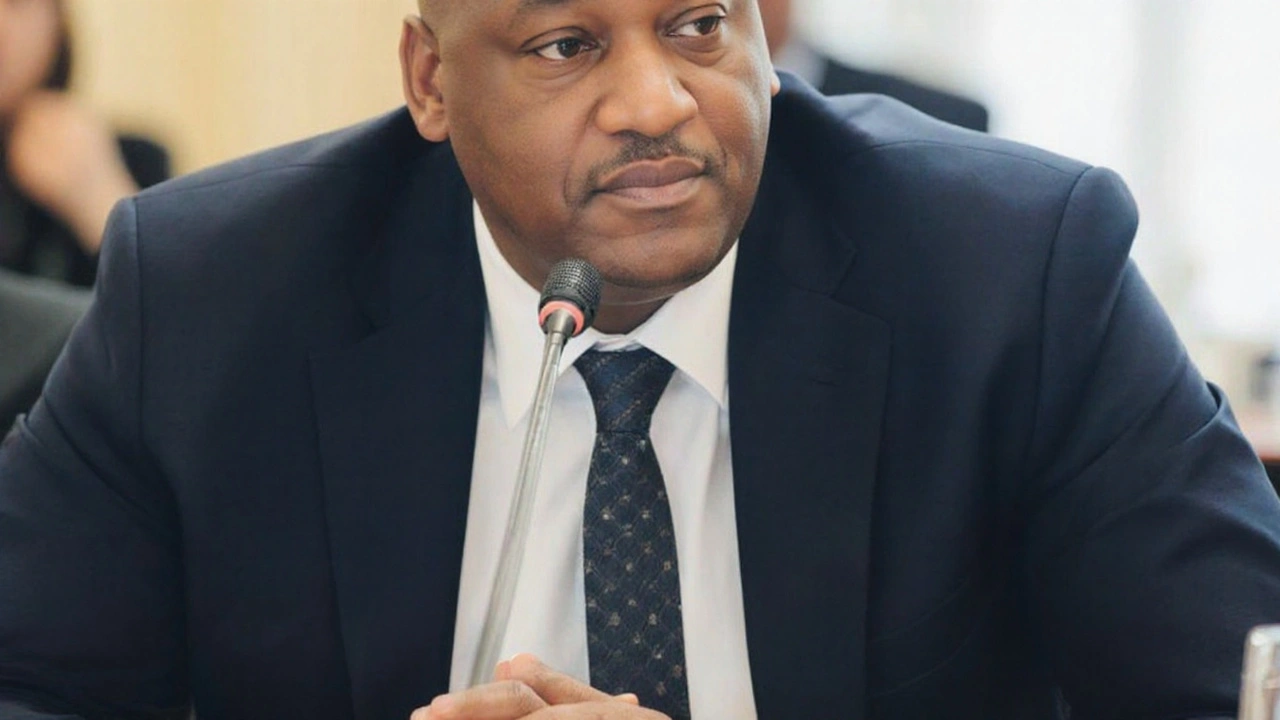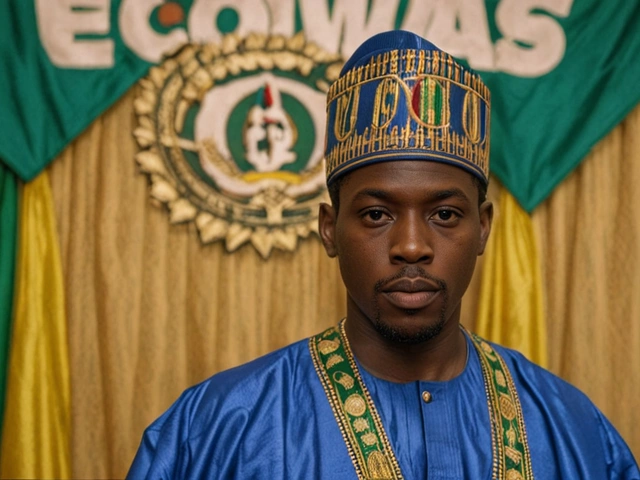Background to the complaint
In early September 2025 the South African Human Rights Commission (SAHRC) announced it would take Sports, Arts and Culture Minister Gayton McKenzie to court. The trigger? A stash of tweets and Facebook posts that resurfaced from 2011 to 2017, many of which contained the slur commonly referred to as the “k‑word” and a handful of remarks critics labelled xenophobic.
The posts first came under fire when several users lodged formal complaints with the SAHRC in mid‑2024. After reviewing the material, the commission sent McKenzie a letter in late July 2025 demanding an explanation. The letter gave him until the end of August to respond – a deadline that slipped away without the thorough answer the commission was looking for.
When the SAHRC’s deadline passed, the commission’s legal team drafted a preliminary finding. They argued the language used in the historic posts met the definition of hate speech and harassment under Sections 7, 10 and 11 of the Promotion of Equality and Prevention of Unfair Discrimination Act (the Equality Act) of 2000. In plain English, the commission said McKenzie’s words could be seen as encouraging discrimination against Black South Africans and other protected groups.
Reverend Chris Nissen, chairperson of the SAHRC, confirmed that the commission did receive a late‑night email from McKenzie’s office on the day the court filing was announced. However, the timing meant the paperwork had already been filed, and the email could not stop the process. "We take any breach of the Equality Act seriously, regardless of when the alleged conduct happened," Nissen said in a short press briefing.
McKenzie, who also heads the Patriotic Alliance party, fired back immediately. In a written response he labelled the allegations “baseless” and insisted every post was meant to challenge racism, not to fuel it. He cited the Constitutional Court case Qwelane v SAHRC (ZACC 22) – the benchmark for defining hate speech – and argued none of his posts satisfied the legal test for intent to incite hatred.

Legal implications and next steps
The SAHRC’s decision to file in the Equality Court is significant. The Equality Court specializes in disputes arising from the Equality Act, offering a venue that can issue orders ranging from fines to mandatory apologies or even injunctions against further discriminatory conduct. If the court finds McKenzie guilty of prima facie violations, it could order him to publicly retract the statements and possibly pay a sanction.
For a sitting cabinet minister, the stakes are high. A conviction could damage his credibility within President Cyril Ramaphosa’s administration and undermine the Patriotic Alliance’s political ambitions. Moreover, the case sends a broader message to public figures: historic social‑media activity can be resurrected and examined under current human‑rights standards.
Legal experts say the outcome will hinge on two main questions. First, whether the court accepts the SAHRC’s interpretation of the posts as hate speech. Second, whether McKenzie can convincingly demonstrate that the intent behind each post was anti‑racist – a defence that would rely heavily on contextual evidence, such as replies, follow‑up posts, and the overall tone of his online activity at the time.
Some observers note that the SAHRC’s move aligns with a growing trend of holding leaders accountable for digital footprints. In 2023, a similar case against a municipal mayor over offensive tweets resulted in a landmark ruling that affirmed the Equality Act’s reach into online spaces. That decision has been cited in recent training sessions for SAHRC staff, suggesting the commission is sharpening its tools for the digital age.
Meanwhile, civil‑society groups have weighed in. The South African Institute for Race Relations issued a statement calling for a fair, transparent process, while activists from the #StopXenophobia movement urged the commission to view the posts through the lens of the collective trauma caused by xenophobic attacks in 2015 and 2019.
McKenzie’s legal team, led by a senior attorney from Pretoria, plans to request a pre‑trial conference to narrow the issues. They intend to argue that the SAHRC’s reliance on a “prima facie” assessment bypasses a proper evidentiary hearing, which, they say, is required under the Constitution’s fair‑trial guarantees.
Regardless of the legal tactics, the case will likely drag on for several months. Court calendars for the Equality Court are already packed, and both sides have signaled they will file extensive briefing papers. In the meantime, the minister’s social‑media accounts have been placed under close watch by both his supporters and detractors, each side eager to shape the public narrative before the first courtroom hearing.
What’s clear is that this isn’t just about a handful of old posts. It’s a litmus test for how South Africa balances freedom of expression with the imperative to fight hate speech. As the legal battle unfolds, the nation will be watching to see whether the Equality Act can serve as a robust shield against discrimination while still respecting the right to speak freely.







Comments
Avantika Dandapani
I can't even begin to imagine how painful it must be for Black South Africans to see those words pop up again, especially from someone in power. It's not just about old tweets-it's about the weight they carry in a country still healing from decades of violence. I hope the court sees the humanity behind the law here.
People say 'context' like it's a shield, but context doesn't erase pain. It just makes it louder.
Ayushi Dongre
The invocation of the Qwelane precedent is legally defensible, yet ethically fraught. The Constitution permits the limitation of expression when it infringes upon the dignity of others-a principle not merely procedural but ontological. To reduce hate speech to intent alone is to mistake the symptom for the disease. The harm is not contingent upon the speaker’s subjective motive; it is embedded in the structure of the utterance itself, and its reception by those historically targeted. The SAHRC’s action is not punitive-it is reparative.
rakesh meena
Old posts don't make you a bad person but using slurs in public definitely does. Time to move on.
sandeep singh
This is just another leftist witch hunt dressed up as justice. The SAHRC is more interested in political theater than real problems like crime or load shedding. These posts were taken out of context to smear a strong leader who actually speaks for the marginalized. The real hate is coming from the people pushing this case.
Sumit Garg
One must consider the epistemological framework under which the SAHRC operates: a postmodern legal apparatus that conflates affect with jurisprudence. The Qwelane decision explicitly requires proof of intent to incite harm-not emotional resonance or retrospective moral judgment. The commission's filing constitutes a category error: it mistakes public outrage for legal standing. Furthermore, the temporal dissonance between 2011–2017 and 2025 raises serious questions about ex post facto application of standards. This is not law-it is performative virtue signaling with subpoena power.
Sneha N
I’m just… *sobs quietly into silk pillow*
Imagine if your words, whispered in anger during a bad day, haunted you for 14 years? But then again… what if those words were knives? 😔💔
Can we forgive? Should we? The court will decide… but my heart already did.
Manjunath Nayak BP
Look, everyone’s acting like this is some new thing but let me tell you what’s really going on-this is a coordinated smear campaign by the same elites who run the media and the universities. They’ve been waiting for a high-profile target to test their new hate speech enforcement playbook. You think this is about Gayton McKenzie? Nah. It’s about setting a precedent so they can go after anyone who says anything unpopular online. And guess what? They’re already compiling lists. I’ve seen the internal memos from people who work at the SAHRC. They’re training their interns on how to flag ‘problematic’ posts from politicians across the spectrum. This isn’t justice. It’s digital McCarthyism. And the worst part? People are cheering it on because they think they’re on the right side. But history doesn’t care about your hashtags. It remembers who got silenced. And next time, it won’t be a minister-it’ll be your neighbor who posted a meme about the weather.